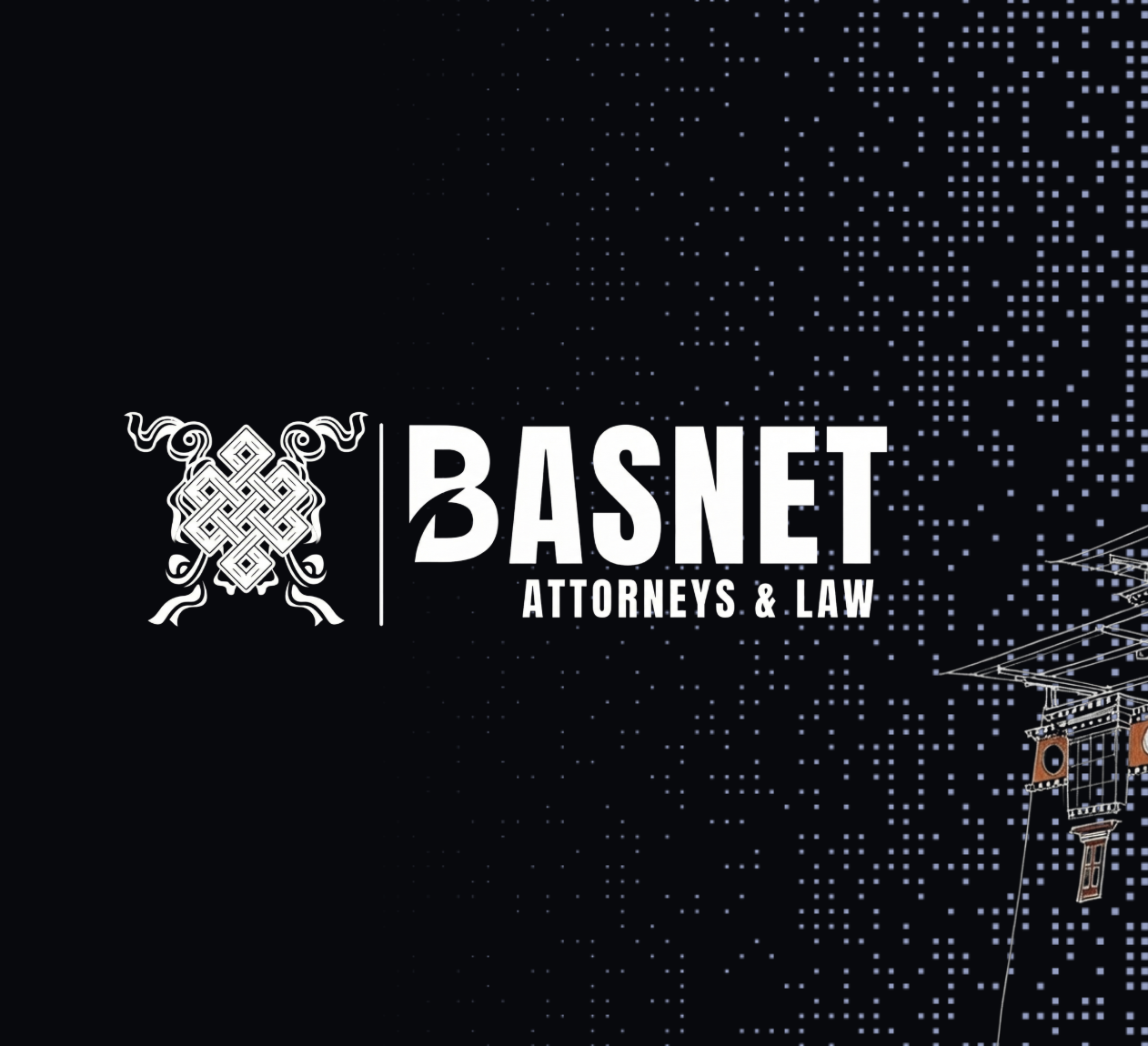Best Business Lawyers in Thimphu
Share your needs with us, get contacted by law firms.
Free. Takes 2 min.
List of the best lawyers in Thimphu, Bhutan

Basnet Attorneys and Law - A Premier law Firm in Bhutan
15 minutes Free ConsultationAbout Business Law in Thimphu, Bhutan
Thimphu, the capital city of Bhutan, is the economic and political hub of the country. As Bhutan opens up to globalization, its business environment has become more dynamic and diverse. Business law in Thimphu encompasses various regulations and legal provisions governing the establishment, operation, compliance, and dissolution of businesses. This body of law ensures that businesses operate within the legal framework set by Bhutanese authorities, promoting transparency, accountability, and ethical practices in the business world.
Why You May Need a Lawyer
In Thimphu, engaging a business lawyer can be crucial in various scenarios. Here are some common situations where legal assistance may be required:
- **Starting a New Business:** Navigating the bureaucratic processes and ensuring compliance with local laws can be complex. A lawyer can assist with registration, drafting articles of incorporation, and obtaining necessary licenses.
- **Contractual Agreements:** Drafting, reviewing, and negotiating contracts with clients, suppliers, or employees often requires legal expertise to avoid potential disputes.
- **Regulatory Compliance:** Businesses must comply with local laws and regulations, including tax obligations, employment law, and environmental regulations. Lawyers help interpret and apply these laws effectively.
- **Intellectual Property:** Protecting intellectual property rights, including trademarks, patents, and copyrights, can prevent unauthorized use of business innovations.
- **Dispute Resolution:** In cases of disputes, having legal representation can ensure that your rights and interests are safeguarded, whether through negotiation, mediation, or litigation.
Local Laws Overview
Business laws in Thimphu are guided by various acts and regulations set by the Bhutanese government. Some of the key aspects include:
- **The Companies Act of Bhutan:** Governs the formation, management, and dissolution of companies. It outlines the procedure for company registration, shareholder rights, and duties of directors.
- **The Labour and Employment Act:** Regulates employment conditions, wages, working hours, and workers' rights to ensure fair labor practices.
- **The Income Tax Act:** Defines tax liabilities and the tax framework applicable to individuals and businesses, including profit tax, corporate tax, and value-added tax.
- **The Foreign Direct Investment (FDI) Policy:** Provides guidelines on foreign investments, ensuring that they contribute to national priorities and benefit the Bhutanese economy.
- **Environmental Protection Act:** Businesses must comply with sustainability and environmental guidelines to minimize their ecological impact.
Frequently Asked Questions
What is the process for registering a new business in Bhutan?
The process involves obtaining a business license from the Department of Trade and Industry, followed by registration with the Registrar of Companies. Specific requirements may vary depending on the business structure and sector.
Do I need a local partner to start a business in Bhutan?
While it is not mandatory for all business types, certain sectors require a local partner under the Foreign Direct Investment Policy for joint ventures.
What are the tax implications for businesses in Bhutan?
Businesses in Bhutan are subject to profit tax, corporate tax, and value-added tax, among others. The tax rate may vary based on the type and size of the business.
How can I protect my intellectual property in Bhutan?
Intellectual property can be protected by registering trademarks, copyrights, and patents with the Department of Intellectual Property under the Ministry of Economic Affairs.
What are the common legal issues faced by businesses in Thimphu?
Businesses often encounter legal issues related to contract disputes, employment law violations, regulatory compliance, and intellectual property infringement.
Is arbitration available for business disputes in Bhutan?
Yes, arbitration is a recognized alternative dispute resolution method in Bhutan for resolving business disputes amicably and efficiently.
Are there incentives for new businesses in Bhutan?
The Bhutanese government offers incentives for specific industries, such as tax exemptions and subsidies, to encourage economic diversification and growth.
How are foreign investments regulated in Bhutan?
Foreign investments are regulated by the Foreign Direct Investment Policy, which requires approval from the government and adherence to defined procedures and criteria.
What is the role of the Bhutan Chamber of Commerce and Industry (BCCI)?
The BCCI represents the interests of the business community, providing support, advocacy, and networking opportunities for businesses in Bhutan.
How can I dissolve a business in Bhutan?
Dissolving a business involves notifying regulatory authorities, settling all accounts, liabilities, and obligations, and filing for dissolution with the Registrar of Companies.
Additional Resources
For anyone seeking legal advice or assistance in business matters in Thimphu, the following resources may be helpful:
- **Department of Trade, Ministry of Economic Affairs:** Offers guidance on business licenses and registrations.
- **Bhutan Chamber of Commerce and Industry (BCCI):** Provides support and resources for business operations and growth.
- **Royal Institute of Management:** Conducts business law workshops and training to help understand legal obligations.
- **Local Law Firms:** Consult local law firms specializing in business law for tailored legal assistance.
Next Steps
If you require legal assistance for your business in Thimphu, consider the following steps:
- **Identify Your Needs:** Clarify what legal services you need, whether it's starting a business, contract review, dispute resolution, etc.
- **Research Law Firms:** Look for law firms or individual lawyers with expertise in Bhutanese business law. Consider their reputation, experience, and client reviews.
- **Consultation:** Reach out to potential legal advisors for an initial consultation to understand how they can assist and what fees are involved.
- **Engage Legal Services:** Once you've selected a legal advisor, establish a formal engagement understanding the scope of services and fees.
Having the proper legal support can be invaluable for ensuring compliance and protecting your business interests in Thimphu, Bhutan.
Lawzana helps you find the best lawyers and law firms in Thimphu through a curated and pre-screened list of qualified legal professionals. Our platform offers rankings and detailed profiles of attorneys and law firms, allowing you to compare based on practice areas, including Business, experience, and client feedback.
Each profile includes a description of the firm's areas of practice, client reviews, team members and partners, year of establishment, spoken languages, office locations, contact information, social media presence, and any published articles or resources. Most firms on our platform speak English and are experienced in both local and international legal matters.
Get a quote from top-rated law firms in Thimphu, Bhutan — quickly, securely, and without unnecessary hassle.
Disclaimer:
The information provided on this page is for general informational purposes only and does not constitute legal advice. While we strive to ensure the accuracy and relevance of the content, legal information may change over time, and interpretations of the law can vary. You should always consult with a qualified legal professional for advice specific to your situation.
We disclaim all liability for actions taken or not taken based on the content of this page. If you believe any information is incorrect or outdated, please contact us, and we will review and update it where appropriate.
Browse business law firms by service in Thimphu, Bhutan
Thimphu, Bhutan Attorneys in related practice areas.










